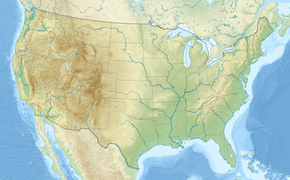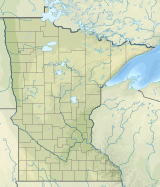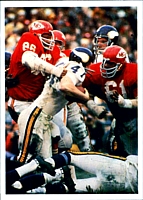
Super Bowl IV was an American football game played on January 11, 1970, at Tulane Stadium in New Orleans, Louisiana. It was the fourth and final AFL–NFL World Championship Game in professional football prior to the AFL–NFL merger taking effect the following season. The American Football League (AFL) champion Kansas City Chiefs defeated the National Football League (NFL) champion Minnesota Vikings by the score of 23–7. This victory by the AFL squared the Super Bowl series with the NFL at two games apiece as the two leagues merged after the game.
Super Bowl VIII was an American football game between the National Football Conference (NFC) champion Minnesota Vikings and the American Football Conference (AFC) champion Miami Dolphins to decide the National Football League (NFL) champion for the 1973 season. The Dolphins conquered the Vikings by the score of 24–7 to win their second consecutive Super Bowl, the first team to do so since the Green Bay Packers in Super Bowls I and II, and the first AFL/AFC team to do so.

Super Bowl IX was an American football game played between the American Football Conference (AFC) champion Pittsburgh Steelers and the National Football Conference (NFC) champion Minnesota Vikings to decide the National Football League (NFL) champion for the 1974 season. The game was played on January 12, 1975, at Tulane Stadium in New Orleans, Louisiana. The Steelers defeated the Vikings by the score of 16–6 to win their first Super Bowl championship.
Super Bowl XI was an American football game between the American Football Conference (AFC) champion Oakland Raiders and the National Football Conference (NFC) champion Minnesota Vikings to decide the National Football League (NFL) champion for its 1976 season. The Raiders defeated the Vikings by the score of 32–14 to win their first Super Bowl. The game was played on January 9, 1977, at the Rose Bowl in Pasadena, California. This remains the earliest scheduled calendar date for a Super Bowl; and the most recent Super Bowl to begin before 4:00 p.m. ET.
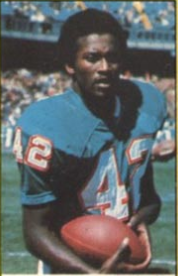
Paul Dryden Warfield is an American former professional football player who was a wide receiver in the National Football League (NFL) from 1964 to 1977 for the Cleveland Browns and Miami Dolphins, except for a year in the World Football League (WFL) with the Memphis Southmen in 1975. He was known for his speed, fluid moves, grace, and jumping ability. A consistent big-play threat throughout his career, his 20.1 average yards per reception is the highest in NFL history among players with at least 300 receptions.

The National Football League playoffs for the 1987 season began on January 3, 1988. The postseason tournament concluded with the Washington Redskins defeating the Denver Broncos in Super Bowl XXII, 42–10, on January 31, at Jack Murphy Stadium in San Diego, California.

The National Football League playoffs for the 1982 season began on January 8, 1983. The postseason tournament concluded with the Washington Redskins defeating the Miami Dolphins in Super Bowl XVII, 27–17, on January 30, at the Rose Bowl in Pasadena, California.

The National Football League playoffs for the 1970 season began on December 26, 1970. The postseason tournament concluded with the Baltimore Colts defeating the Dallas Cowboys in Super Bowl V, 16–13, on January 17, 1971, at the Orange Bowl in Miami, Florida.
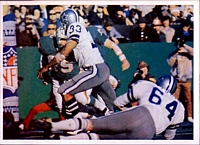
The National Football League playoffs for the 1971 season began on December 25, 1971. The postseason tournament concluded with the Dallas Cowboys defeating the Miami Dolphins in Super Bowl VI, 24–3, on January 16, 1972, at Tulane Stadium in New Orleans, Louisiana.
The National Football League playoffs for the 1973 season began on December 22, 1973. The postseason tournament concluded with the Miami Dolphins defeating the Minnesota Vikings in Super Bowl VIII, 24–7, on January 13, 1974, at Rice Stadium in Houston, Texas.
The National Football League playoffs for the 1974 season began on December 21, 1974. The postseason tournament concluded with the Pittsburgh Steelers defeating the Minnesota Vikings in Super Bowl IX, 16–6, on January 12, 1975, at Tulane Stadium in New Orleans, Louisiana.
The NFL playoffs following the 1969 NFL season determined the league's representative in Super Bowl IV.
The NFL playoffs following the 1968 NFL season determined who would represent the league in Super Bowl III.

The 1969 NFL season was the 50th regular season of the National Football League, and its last before the AFL–NFL merger. To honor the NFL's fiftieth season, a special anniversary logo was designed and each player wore a patch on their jerseys with this logo throughout the season.
The 1968 NFL Championship Game was the 36th annual championship game. The winner of the game represented the National Football League (NFL) in the third AFL–NFL World Championship Game. The NFL title game was held December 29 at Cleveland Municipal Stadium in Cleveland, Ohio.
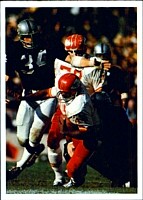
The 1969 Kansas City Chiefs season was the team's tenth, their seventh in Kansas City, and the final season of the American Football League (AFL). It resulted in an 11–3 regular season record and three postseason road victories, including a 23–7 victory in Super Bowl IV over the NFL's heavily favored Minnesota Vikings.

The 1969 season was the Minnesota Vikings' ninth season in the National Football League (NFL) and their third under head coach Bud Grant. With a 12–2 record, the best in the league, the Vikings won the NFL Central division title, to qualify for the playoffs for the second year in a row. This was the first of three consecutive seasons as the best team in the NFL for the Vikings. They beat the Los Angeles Rams in the Western Conference Championship Game, and the Cleveland Browns in the final NFL Championship Game before the merger with the American Football League. With these wins, the Vikings became the last team to possess the Ed Thorp Memorial Trophy, introduced 35 years earlier in 1934.
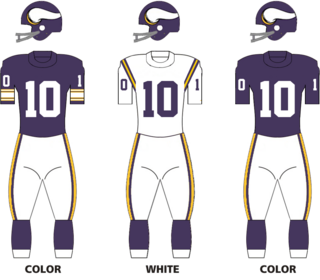
The 1974 season was the Minnesota Vikings' 14th in the National Football League (NFL). They won the NFC Central with a 10–4 record, before defeating the St. Louis Cardinals 30–14 in the NFC divisional playoff game, followed by a 14–10 win over the Los Angeles Rams to claim their second consecutive NFC championship. The Vikings then lost 16–6 to the Pittsburgh Steelers in Super Bowl IX at Tulane Stadium in New Orleans, Louisiana, becoming the first team to lose consecutive Super Bowls.
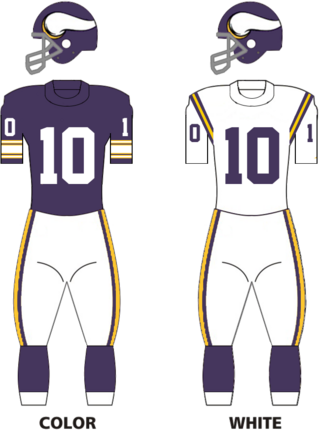
The 1976 season was the Minnesota Vikings' 16th in the National Football League (NFL). The Vikings finished with an 11–2–1 record to give them their eighth NFC Central division title. They beat the Washington Redskins 35–20 in the divisional round of the playoffs, followed by a 24–13 win over the Los Angeles Rams in the NFC Championship, before losing 32–14 to the Oakland Raiders in Super Bowl XI. As of 2023, this is the most recent Super Bowl appearance by the franchise.
The 1969 Pittsburgh Steelers season was the franchise's 37th in the National Football League. It would mark a turning point of the Steelers franchise. 1969 was the first season for Hall of Fame head coach Chuck Noll, the first season for defensive lineman "Mean Joe" Greene and L. C. Greenwood, the first season for longtime Steelers public relations director Joe Gordon, and the team's last season in Pitt Stadium before moving into then-state-of-the-art Three Rivers Stadium the following season.
